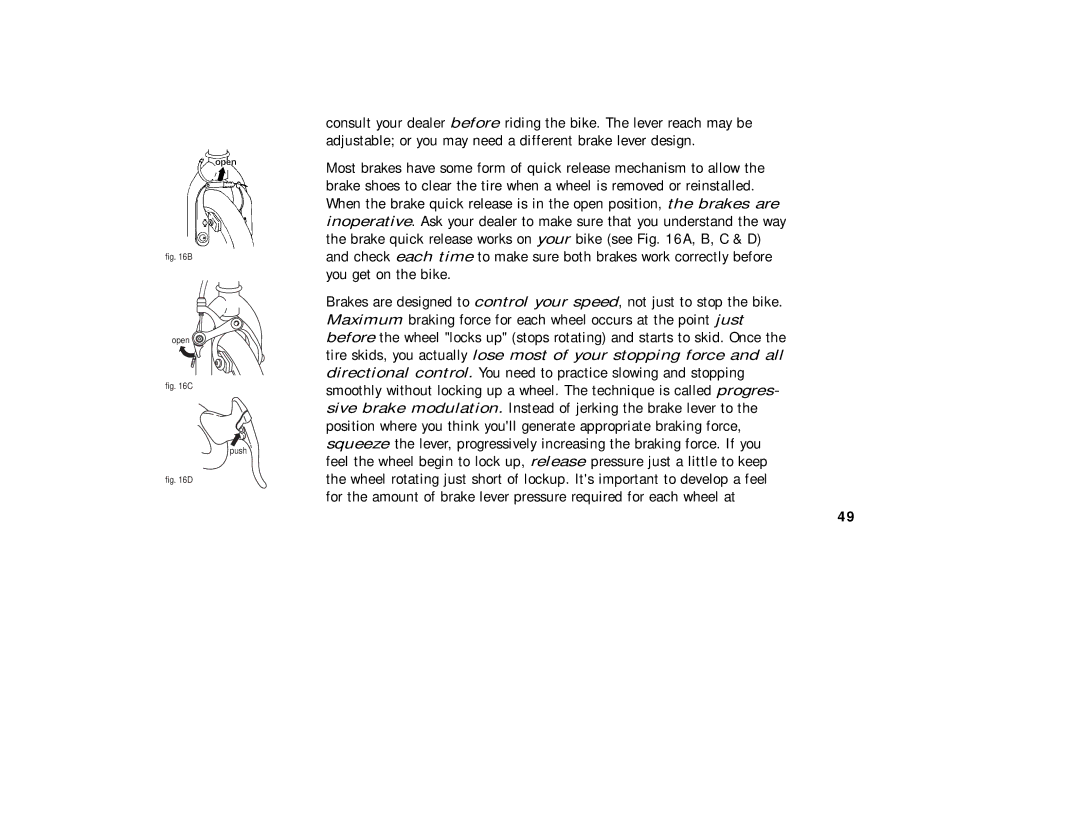
fig. 16B
open 
fig. 16C
push
fig. 16D
consult your dealer before riding the bike. The lever reach may be adjustable; or you may need a different brake lever design.
Most brakes have some form of quick release mechanism to allow the brake shoes to clear the tire when a wheel is removed or reinstalled. When the brake quick release is in the open position, the brakes are inoperative. Ask your dealer to make sure that you understand the way the brake quick release works on your bike (see Fig. 16A, B, C & D) and check each time to make sure both brakes work correctly before you get on the bike.
Brakes are designed to control your speed, not just to stop the bike. Maximum braking force for each wheel occurs at the point just before the wheel "locks up" (stops rotating) and starts to skid. Once the
tire skids, you actually lose most of your stopping force and all
directional control. You need to practice slowing and stopping smoothly without locking up a wheel. The technique is called progres- sive brake modulation. Instead of jerking the brake lever to the position where you think you'll generate appropriate braking force, squeeze the lever, progressively increasing the braking force. If you feel the wheel begin to lock up, release pressure just a little to keep the wheel rotating just short of lockup. It's important to develop a feel for the amount of brake lever pressure required for each wheel at
49
